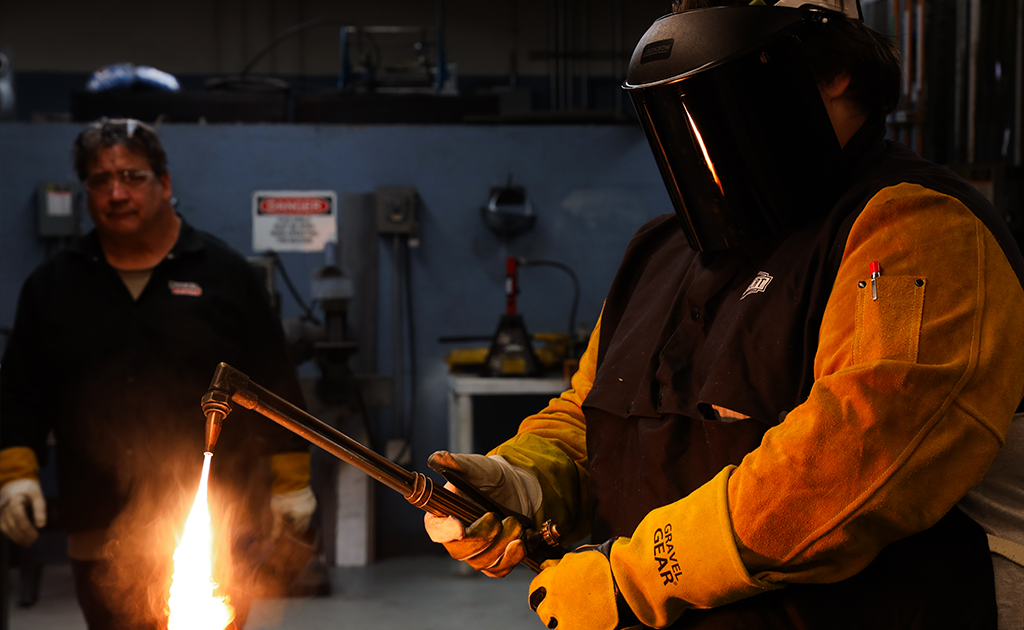Welding

Program Overview
The Welding Technology curriculum combines not only advanced welding skills but related technical courses designed to prepare students for employment as welders, welder-fitters, specialist welders, or ultimately, welding supervisors, analysts, inspectors, and welding technicians. It emphasizes a sound understanding of the science, technology, and application essential for successful employment in the welding and metal industries.
Additionally, the American Welding Society standards are stressed throughout the program. This focus on compliance with industry standards ensures that students are well-prepared to meet the expectations of the welding profession and are capable of conducting their work safely and effectively.
Degree Information
The Welding Technology curriculum combines not only advanced welding skills but related technical courses designed to prepare students for employment as welders, welder-fitters, specialist welders, or ultimately, welding supervisors, analysts, inspectors, and welding technicians. The American Welding Society standards are stressed.
Course Guides
Jefferson College Institutional Course Guides (ICGs) are found in the Simple Syllabus - Syllabus Library AND/OR within your Canvas class page via the Simple Syllabus link in the Course Navigation Menu.
Please note the following supplies is required:
Safety Glasses, Vise grips 2pr Model: 11R, #1 Victor welding tip 1-W-1, Flint striker, Tip cleaners, Welding gloves (Heavy), Chipping hammer, Welding gloves (Light weight Tig), Ear plugs, Welding jacket (Light weight green), Welding magnets, Leather cape and sleeves, Wire brush, Steel toed leather work boots, Cutting goggles w/ #5 lens, Tape measure, Welding hood w/#10 lens, 6' stick ruler, Soapstone round or flat, Welding pliers (Welpers), Combination Square, and Padlock for locker
Career Opportunities
There are various types of welding jobs available, including construction welders who build essential structures like bridges and buildings, manufacturing welders who work on metal components, and specialized roles like underwater and aerospace welders. This variety allows welders to choose careers that align with their interests, whether they prefer working in urban construction sites or remote environments like oil rigs.
The welding industry is expected to see continuous growth, with the Bureau of Labor Statistics forecasting a 3% increase in welding careers over the next decade. The American Welding Society has noted that the U.S. will require approximately 400,000 additional welders by 2025, primarily due to retirements of current skilled workers. This demand creates a favorable environment for newly trained welders entering the job market, offering them a chance to secure stable employment.








